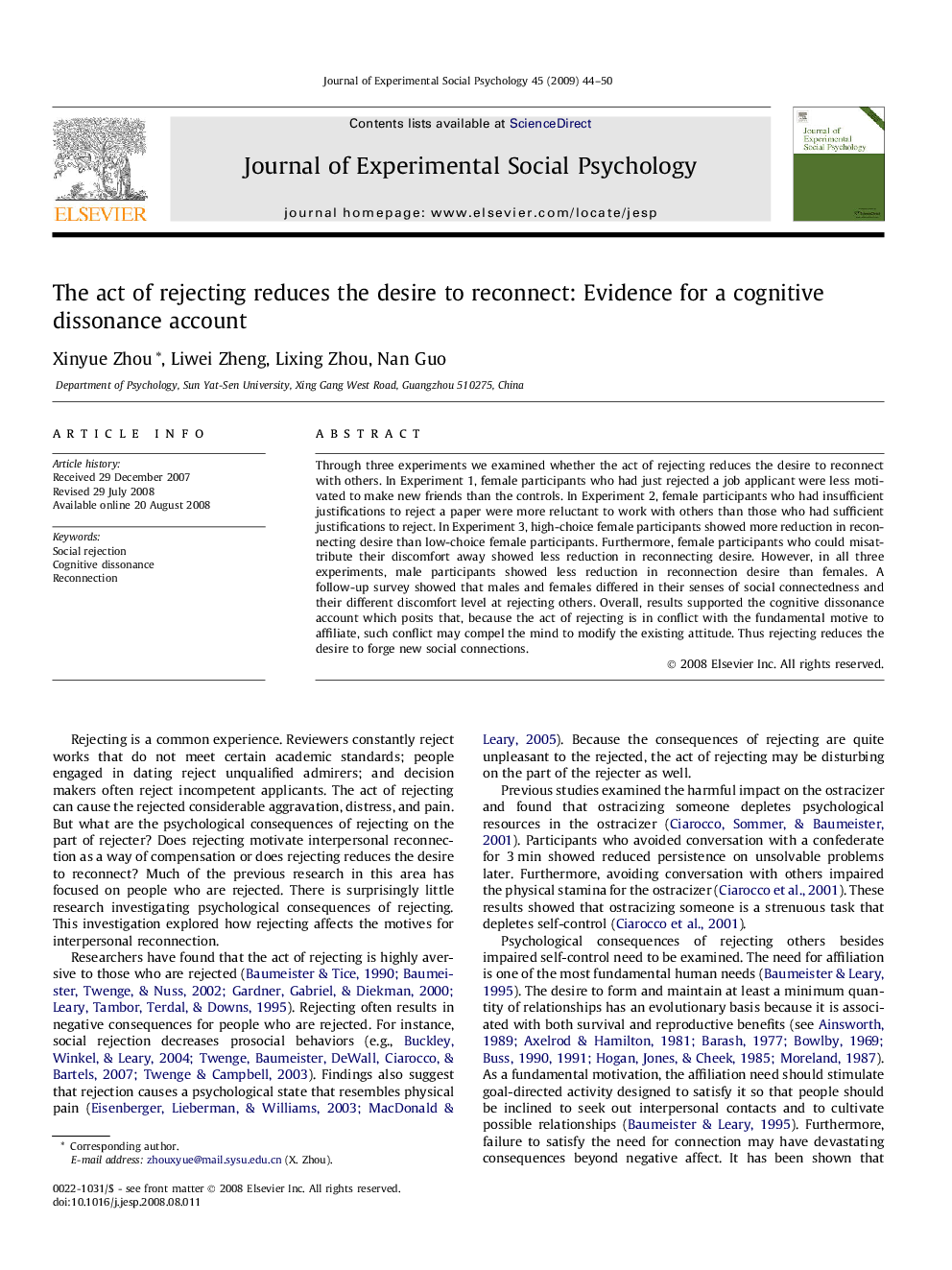| Article ID | Journal | Published Year | Pages | File Type |
|---|---|---|---|---|
| 948987 | Journal of Experimental Social Psychology | 2009 | 7 Pages |
Through three experiments we examined whether the act of rejecting reduces the desire to reconnect with others. In Experiment 1, female participants who had just rejected a job applicant were less motivated to make new friends than the controls. In Experiment 2, female participants who had insufficient justifications to reject a paper were more reluctant to work with others than those who had sufficient justifications to reject. In Experiment 3, high-choice female participants showed more reduction in reconnecting desire than low-choice female participants. Furthermore, female participants who could misattribute their discomfort away showed less reduction in reconnecting desire. However, in all three experiments, male participants showed less reduction in reconnection desire than females. A follow-up survey showed that males and females differed in their senses of social connectedness and their different discomfort level at rejecting others. Overall, results supported the cognitive dissonance account which posits that, because the act of rejecting is in conflict with the fundamental motive to affiliate, such conflict may compel the mind to modify the existing attitude. Thus rejecting reduces the desire to forge new social connections.
